As a BetterHelp affiliate, we receive compensation from BetterHelp if you purchase products or services through the links provided
The Center for Anxiety Disorders and Phobias, located in Fairfield, Connecticut, offers specialized treatment for individuals with various anxiety and phobia disorders. The center provides comprehensive care, including diagnostic assessments, cognitive-behavioral therapy, and support for patients of all ages in the local community.
Its office in the Fairfield Woods Plaza on Black Rock Turnpike makes the center easily accessible to those seeking help for conditions such as panic disorder, generalized anxiety disorder, social anxiety, specific phobias, and even obsessive-compulsive disorder. To ensure the best patient experience possible, the center also offers different appointment options, such as home visits and telehealth appointments, catering to those with limited mobility or who live further away.
Key Takeaways
- Specialized treatment for anxiety and phobia disorders is offered at the Center in Fairfield, CT.
- A dedicated team of professionals provides comprehensive care, including diagnostic assessments and cognitive-behavioral therapy.
- The center’s convenient location and appointment options cater to the needs of patients in and around the local area.
 Services Offered
Services Offered
At the Center for Anxiety Disorders and Phobias in Fairfield, CT, you’ll find various services designed to help you manage and overcome your anxiety and phobias. This center is staffed by experienced professionals who are dedicated to providing comprehensive, evidence-based treatments that cater to your unique needs.
Psychiatry and Neurology
The Center for Anxiety Disorders and Phobias team includes experts in psychiatry and neurology. They offer treatments for a variety of anxiety-related conditions, such as:
- Panic Disorder
- Agoraphobia
- Obsessive Compulsive Disorder
- Specific Phobias
- Social Anxiety Disorder
Using a combination of medication and therapeutic approaches can help you achieve a more balanced state of mental health.
Evaluation and Training
Before beginning any treatment, the staff at the Center will carefully evaluate your needs and symptoms. This may involve:
- Psychological assessments to identify the specific nature of your anxiety or phobia
- Cognitive evaluations to determine cognitive functioning levels
Once they clearly understand your needs, they will create a personalized treatment plan tailored to your specific situation. The Center offers a variety of treatment methods, such as:
- Cognitive Behavioral Therapy (CBT): This evidence-based approach focuses on identifying and changing the patterns of thoughts and behaviors that contribute to anxiety and phobias.
- Clinical Psychology: The center’s experts in clinical psychology work with you to explore the underlying causes of your anxiety and develop strategies for overcoming them.
- Accepting new patients: The Center for Anxiety Disorders and Phobias is committed to helping individuals achieve lasting relief from their anxiety and phobias. They gladly welcome new patients seeking treatment for these conditions.
Remember, seeking help for your anxiety or phobias is crucial to living a happier, more fulfilling life. The caring professionals at the Center for Anxiety Disorders and Phobias in Fairfield, CT are ready to provide the compassionate care and support you need to overcome your challenges.
 Conditions Treated
Conditions Treated
Generalized Anxiety Disorder (GAD)
If you struggle with Generalized Anxiety Disorder (GAD), you find yourself constantly worried about various aspects of your life, even when there’s no clear reason for the concern. At the Center for Anxiety Disorders and Phobias in Fairfield, CT, they provide cognitive-behavioral therapy to help you learn new ways to manage your thoughts and reduce your anxiety. As a result, you’ll experience:
- Decreased worry and intrusive thoughts
- Improved ability to handle uncertainty
- Better decision-making and problem-solving skills
Social Anxiety
For some, social situations can be overwhelming and cause extreme feelings of self-consciousness. Social anxiety can limit your professional and personal life, but the center offers personalized treatments to improve your confidence when interacting with others. Key takeaways from treatment include:
- Enhancing communication skills
- Tackling irrational thoughts about social situations
- Building healthy coping strategies
Panic Disorder
Panic disorder can be incapacitating, with sudden and intense feelings of fear taking over without warning. Fortunately, the center specializes in treating panic disorder, helping you regain control over your life. A few benefits from therapy are:
- Identifying triggers for your panic attacks
- Developing strategies to prevent or reduce panic symptoms
- Mastering relaxation techniques to manage anxiety
 Specific Phobias
Specific Phobias
From fear of heights to the fear of spiders, specific phobias can significantly impair various aspects of life. The center’s therapies aim to help you confront and overcome your fears in a safe, controlled environment. Notable outcomes of the treatment include:
- Exposure and response prevention techniques
- Challenging irrational beliefs related to phobias
- Developing coping skills to face your fears with confidence
 Obsessive Compulsive Disorder (OCD)
Obsessive Compulsive Disorder (OCD)
Obsessive Compulsive Disorder (OCD) is characterized by repetitive thoughts and behaviors that can become disruptive and time-consuming. At the center, therapists help you tackle the root of your OCD and provide effective tools to manage your symptoms. Treatment outcomes include:
- Identifying and challenging obsessive thoughts
- Learning behavioral strategies to reduce compulsive behaviors
- Enhancing emotional regulation and resilience
Agoraphobia
Agoraphobia is a fear of leaving home or venturing into public spaces, creating a sense of feeling trapped. The center equips you with the necessary skills to overcome agoraphobia and regain independence. Therapy highlights include:
- Gradual exposure to feared situations
- Developing a strong support system
- Incorporating relaxation techniques to manage anxiety
The Team
At the Center for Anxiety Disorders and Phobias in Fairfield, CT, you’ll find a dedicated group of professionals passionate about helping you overcome anxiety-related difficulties. Their multidisciplinary team focuses on providing specialized cognitive and behavioral psychotherapy for a variety of disorders, such as panic disorder with agoraphobia, obsessive-compulsive disorder, specific phobias, and social anxiety disorder.
Physicians
The talented physicians at the Center for Anxiety Disorders and Phobias are highly trained in the field of anxiety and cognitive-behavioral therapy. Dr. Nicholas Maltby, Ph.D., serves as the Director of the center. He received his doctorate from the University of Connecticut in 2001 and completed a post-doctoral fellowship specializing in anxiety disorders at the Anxiety Disorders Center at the Institute of Living.
Another key member of their team is Dr. Christina J. Taylor, Ph., a clinical psychologist who specializes in cognitive-behavioral therapy for various anxiety disorders, including obsessive-compulsive disorder, panic disorder, agoraphobia, social phobia, generalized anxiety disorder, specific phobias, and the OCD spectrum disorder Trichotillomania.
With their combined expertise, the team members at the Center for Anxiety Disorders and Phobias are well-equipped to provide you with the support and guidance needed to manage your anxiety issues. By collaborating with these skilled professionals, you can learn effective strategies and tools to help you overcome the challenges you face, ultimately leading to a more fulfilling life.
Appointment Process
Making an appointment at the Center for Anxiety Disorders and Phobias in Fairfield, CT is a simple process. To schedule your appointment, you can choose from the following options:
Phone: For appointments, you can give the center a call. To reach Diane E. Sholomskas, Ph.D., you can dial (203) 776-2077. To schedule an appointment with Christina J. Taylor, Ph.D., call (203) 372-4593.
The center’s staff is friendly and will guide you through the appointment process. Just provide them with your relevant information, and they’ll help you find a time that works best for you.
Emailing the center isn’t provided as an available option for appointments. However, you should feel free to call and receive all the necessary information through phone.
To make the most of your appointment, consider the following tips:
- Be punctual: Arrive on time to ensure you get the full duration of your session.
- Prepare your questions: Have a list of concerns or questions you want to discuss during the appointment.
- Be open: Share your feelings and experiences to help your therapist understand your situation better.
Consistent appointments and open communication with your therapist are crucial for treating anxiety and phobia. Being proactive and attentive will create a strong foundation for positive change.

Patient Experience
At the Center for Anxiety Disorders and Phobias in Fairfield, CT, you can expect a friendly and professional environment where you and your loved ones are treated with care and respect. As a patient, you’ll benefit from comprehensive and evidence-based treatments tailored to your specific needs.
Regarding children and adolescents, the center specializes in cognitive behavioral treatment for anxiety and related disorders. These cases often include Generalized Anxiety Disorder, Social Anxiety, Specific Phobias, Panic Disorder, Separation Anxiety, Obsessive-Compulsive Disorder, and Posttraumatic Stress Disorder (PTSD).
During your sessions, you’ll work with highly trained therapists who create a safe and trusting space for you to express your anxieties and fears. They’ll provide effective strategies and coping mechanisms to manage these feelings. It’s essential to follow their guidance on implementing these strategies to improve your anxiety and overall well-being significantly.
As you progress through therapy, you might notice:
- A reduction in your anxiety levels
- Improved coping skills
- A deeper understanding of your triggers
- Better control over your thoughts and emotions
Bear in mind that each person’s journey is unique, and the duration and outcomes of therapy may vary. Communicating openly with your therapist and disclosing any concerns or setbacks throughout the process is essential. This helps them adjust treatment plans, ensuring your experience remains positive and productive.
Regarding patient reviews, gathering feedback from multiple sources is essential to get a comprehensive picture of others’ experiences at the Center for Anxiety Disorders and Phobias. Look for testimonials from patients who have undergone similar treatments and keep an open mind while considering their input. Just like any therapy, individual experiences can differ.
Remember, seeking help and support for anxiety disorders is courageous, and the Center for Anxiety Disorders and Phobias in Fairfield, CT aims to provide the best experience for their patients. With commitment and perseverance, you can progress in managing your anxiety and lead a more fulfilling life.
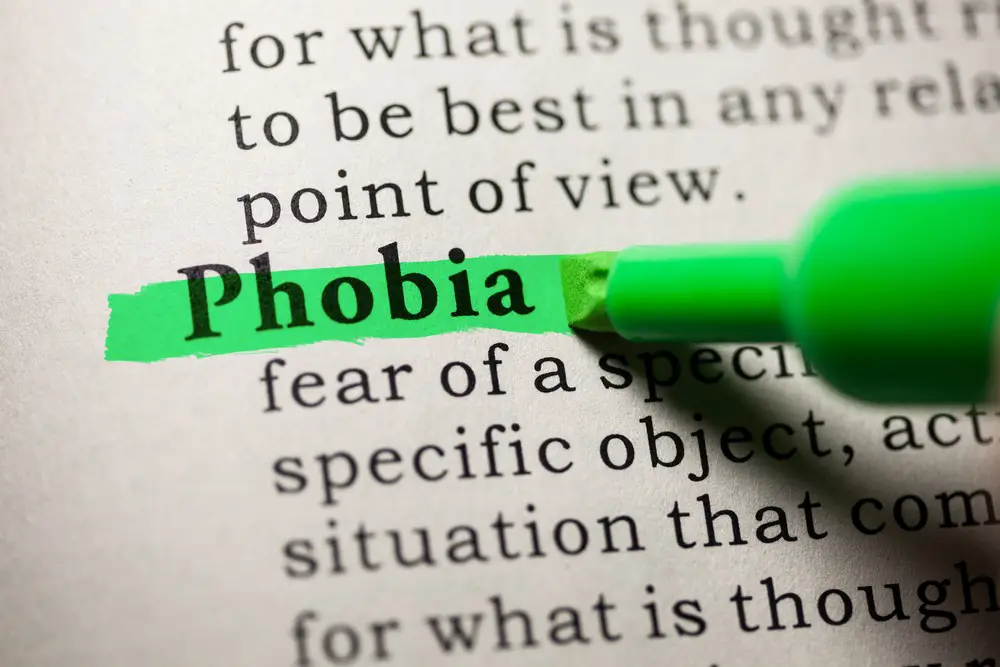
Locations
The Center for Anxiety Disorders and Phobias is conveniently located in Fairfield, CT. More specifically, you can find it at 2335 Black Rock Turnpike. This location is easily accessible for people living in New Haven and Fairfield counties.
When planning your visit, it’s reassuring that the center has a team of 4 experienced professionals ready to help. With 3 different areas of expertise, you can expect a dedicated treatment catering to your specific needs. The center addresses Panic Disorder with Agoraphobia, Obsessive-Compulsive Disorder, Specific Phobias, and Social Anxiety Disorder.
As you prepare for your appointment at the Center for Anxiety Disorders and Phobias, check their website for directions and maps to ensure a smooth journey. Understanding the center’s layout will make you feel more relaxed and confident upon arrival.
While you’re there, don’t forget to take advantage of the language support provided. The center is proud to accommodate English-speaking clients to make communication seamless.
Remember, reaching out for assistance and support is a brave step forward in your journey towards a healthier and happier life. The Center for Anxiety Disorders and Phobias in Fairfield, CT, is eager to welcome you and help you overcome your challenges with a compassionate and knowledgeable team on your side.
 Signs You Need Therapy
Signs You Need Therapy
If you or someone you know is struggling with anxiety or a phobia, it might be helpful to know the signs that indicate therapy may be necessary. Here are some of the symptoms and indications that suggest you could benefit from seeking help:
- Persistent feelings of worry or fear that interfere with your daily life
- Difficulty managing everyday tasks due to anxiety
- Experiencing panic attacks or intense fear in specific situations
- Avoidance of situations or places that trigger anxiety or phobia
- Difficulty sleeping or concentrating because of anxiety
- Physical symptoms such as rapid heart rate, shortness of breath, or chest pain
Setting Goals for Therapy
If you recognize any of these signs in your life, therapy can be a beneficial step in addressing your anxiety or phobia. When beginning therapy, it’s important to set clear and realistic goals which can include:
- Building coping mechanisms for managing anxiety
- Learning relaxation techniques to help calm nerves
- Identifying and challenging irrational thoughts
- Gradually facing feared situations in a controlled environment
- Developing a support system for ongoing assistance
Key takeaway: Establishing goals for therapy can provide you with a clear direction for overcoming your anxiety or phobia.
Monitoring Progress
Throughout your therapy journey, it’s essential to monitor your progress and adjust your goals as needed. You can do this by:
- Keeping a journal to track your thoughts and experiences
- Regularly discussing your progress with your therapist
- Celebrating small victories, like facing a fear or implementing a coping strategy
- Evaluating what strategies work best for you and adjusting your approach as needed
- Being patient and persistent in your progress, knowing that overcoming anxiety or a phobia can take time
Key takeaway: Regularly monitoring your progress and celebrating your accomplishments can help maintain motivation and improve your overall success in therapy.
By knowing the signs that therapy may be necessary, establishing clear goals, and monitoring progress, you can better manage your anxiety or phobia and gradually work towards a more fulfilling life.
 Options for Those Living Out of Area
Options for Those Living Out of Area
Never fear if you’re living outside the Fairfield, CT, area and looking for support with anxiety disorders and phobias. You can access help in several ways, whether by finding a local therapist or exploring online options. So, don’t worry; let’s check some strategies out.
First, you can start researching local therapists by looking for professionals in your area who specialize in treating anxiety disorders and phobias. Just remember the following tips while searching:
- Use reputable resources like the American Psychological Association (APA) or Anxiety and Depression Association of America (ADAA) websites for lists of recommended providers.
- Narrow your search by including terms relevant to your situation. For example, if you have a specific phobia, include that in your search.
- Ask for recommendations from friends, family, or primary care doctors. They might know someone suitable for you.
Now, when it comes to online options, they’re a fantastic solution if you can’t physically access a therapist or have limited services in your area. Some benefits of online therapy are:
- Flexibility: Online therapy can be conducted from the comfort of your home and usually offers more appointment times, allowing you to fit sessions into your busy schedule.
- Anonymity: Online therapy offers the opportunity to work with therapists from all over the country or even the world, ensuring anonymity and addressing privacy concerns.
- Access to specialized care: You can search for a specialist who’s a perfect fit for your needs, even if they’re remotely located. This is especially helpful if you live in an area with limited mental health resources.
Key takeaway: No matter where you live, help is available. By researching local options, exploring online therapy, and networking with others, you can find the right support for your anxiety disorders and phobias. There’s a path for you, so keep moving forward with confidence.
Frequently Asked Questions

What treatments are available for anxiety disorders?
Various treatments are available for anxiety disorders, including cognitive and behavioral psychotherapy. These therapies can help you manage panic disorder with agoraphobia, obsessive-compulsive disorder, specific phobias, and social anxiety disorder. In more severe cases, inpatient care may be necessary for individuals during the acute phase of their illness.
How can I find the right therapist for phobia treatment?
Finding the right therapist is crucial for effective phobia treatment. You can start by looking at local treatment centers like the Center for Anxiety Disorders and Phobias in Fairfield, CT. If you’re in New Haven or Fairfield County, it’s also worth considering therapists in those areas. Always check if the therapist is taking new patients and if they accept your insurance.
Which therapeutic approaches are used to treat anxiety disorders?
Different therapeutic approaches can treat anxiety disorders, such as cognitive-behavioral therapy (CBT), exposure therapy, and acceptance and commitment therapy (ACT). Working with a qualified therapist who can tailor a treatment plan to your specific needs is essential, using the right approach for your situation.
Are medication options available for phobia treatment?
Yes, medication options are available for phobia treatment, depending on the severity and type of phobia. In some cases, medications like antidepressants, anti-anxiety medications, or beta-blockers can be prescribed to help manage symptoms. However, it’s vital to consult with a healthcare professional who can assess your specific needs and recommend the best course of treatment.
What is the most common specific phobia treated?
There are several common specific phobias, but one of the most frequently treated is social anxiety disorder. Social anxiety disorder involves a significant fear of social situations, often accompanied by a fear of being judged or embarrassed. It can be treated with therapy, medication, or both, depending on the individual’s needs and preferences.
Can a local treatment center help with both anxiety and phobias?
Yes, a local treatment center like the Center for Anxiety Disorders and Phobias in Fairfield, CT, can help with both anxiety disorders and phobias. They provide services for various mental health issues, such as generalized anxiety, panic disorder, social anxiety, mood disorders, and substance use disorders, making them well-equipped to address anxiety and phobias.
About Jacob Maslow
After surviving the traumatizing events of 9/11, I took it upon myself to heal through helping others. I’m the primary caregiver of my children and understand from first-hand experience the lonely paths you have to walk as a partner and parent when leaving an unhealthy relationship.
We’re all echoing in a dark space that doesn’t have to be this empty, and that’s been my mission since finding solace and recovery in therapy: To help comfort others who are still in shock and at the prime of their struggle.
I came across BetterHelp after searching for this type of community. I wanted to belong to a body of proactive therapists and supportive therapy veterans that allowed me to see other sides of the story.
It was unconventional, and that’s what attracted me most. During my most challenging times, when my ex-wife completely cut me off from my children, I found comfort and clarity through BetterHelp.
Instead of being chained to a strict therapist recommendation, I was in charge of who I felt understood my struggle most. That allowed me to find my true peace, as I was reunited with those who read behind my words and had first-hand experience with my trauma.
Recovery is a choice; with BetterHelp, that choice will be a few clicks away. You can join their couples-oriented platform, Regain.us for those stuck with family estrangement and toxic relationship patterns.
- 3 Ways Wearing a Hat Can Help Lower Your Stress Levels - April 19, 2025
- Breaking the Silence: Why Men’s Mental Health Matters More Than Ever - April 15, 2025
- How to Transform a Home’s Patio Space into a Relaxing Space - March 23, 2025
This site contains affiliate links to products. We will receive a commission for purchases made through these links.


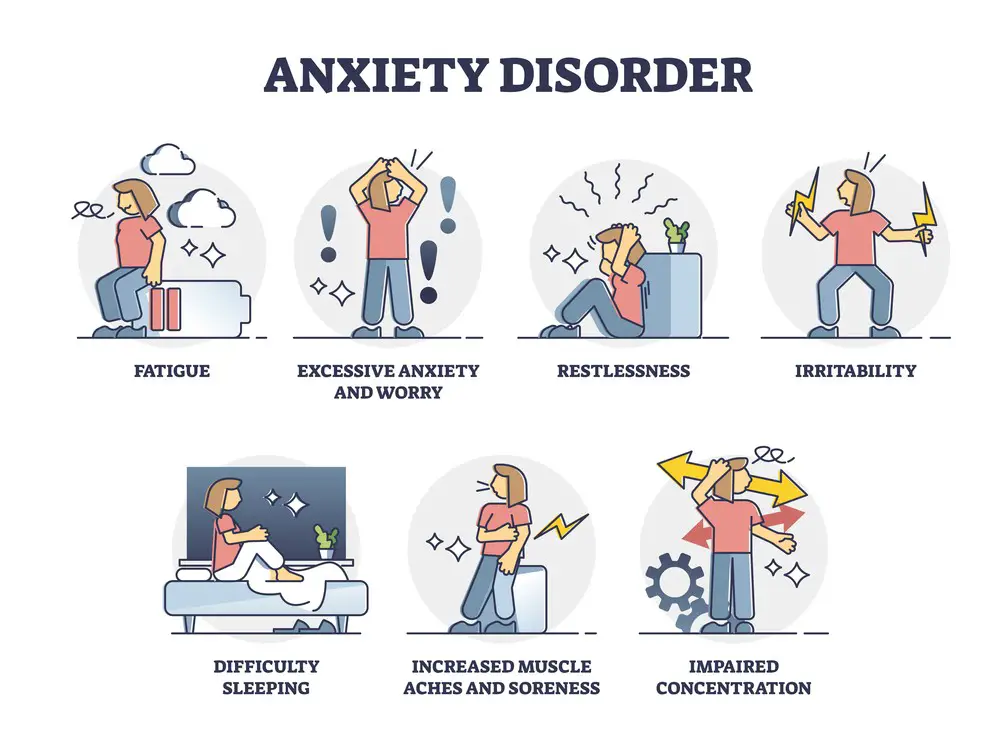 Services Offered
Services Offered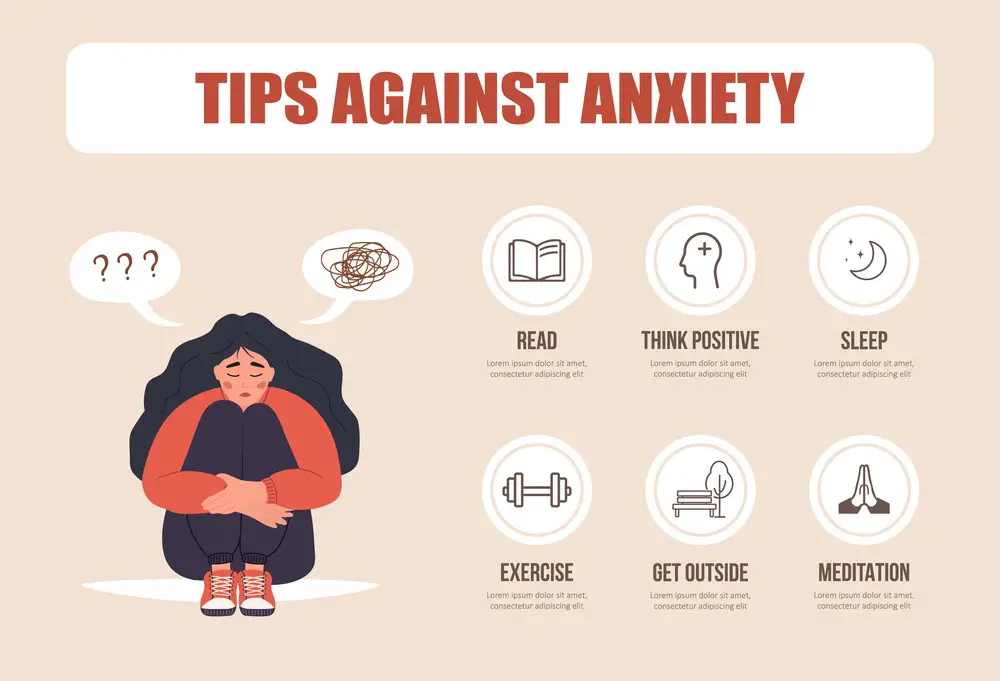 Conditions Treated
Conditions Treated Specific Phobias
Specific Phobias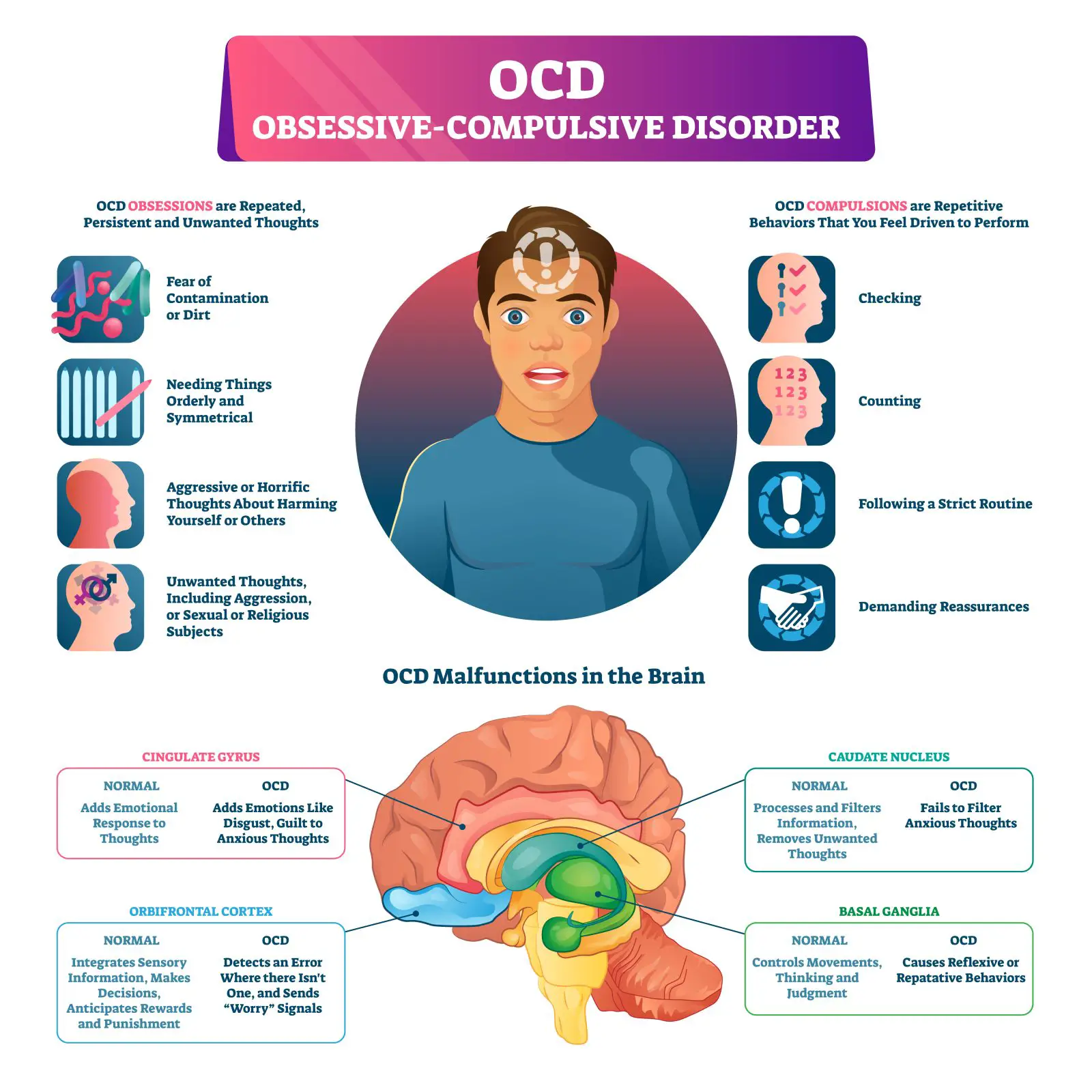 Obsessive Compulsive Disorder (OCD)
Obsessive Compulsive Disorder (OCD) Signs You Need Therapy
Signs You Need Therapy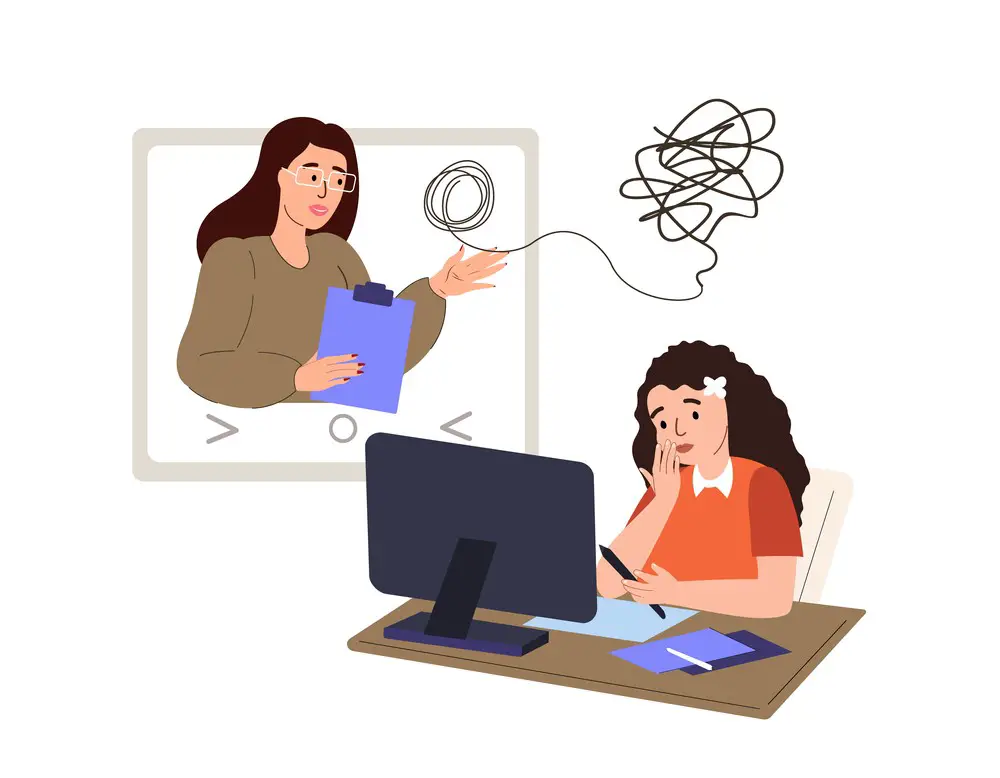 Options for Those Living Out of Area
Options for Those Living Out of Area
